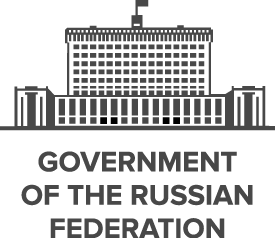Founded in the 12th century, the Principality of Muscovy was able to emerge from over 200 years of Mongol domination (13th-15th centuries) and to gradually conquer and absorb surrounding principalities. In the early 17th century, a new ROMANOV Dynasty continued this policy of expansion across Siberia to the Pacific. Under PETER I (ruled 1682-1725), hegemony was extended to the Baltic Sea and the country was renamed the Russian Empire. During the 19th century, more territorial acquisitions were made in Europe and Asia. Defeat in the Russo-Japanese War of 1904-05 contributed to the Revolution of 1905, which resulted in the formation of a parliament and other reforms. Repeated devastating defeats of the Russian army in World War I led to widespread rioting in the major cities of the Russian Empire and to the overthrow in 1917 of the imperial household. The communists under Vladimir LENIN seized power soon after and formed the USSR. The brutal rule of Iosif STALIN (1928-53) strengthened communist rule and Russian dominance of the Soviet Union at a cost of tens of millions of lives. After defeating Germany in World War II as part of an alliance with the US (1939-1945), the USSR expanded its territory and influence in Eastern Europe and emerged as a global power. The USSR was the principal adversary of the US during the Cold War (1947-1991). The Soviet economy and society stagnated in the decades following Stalin’s rule, until General Secretary Mikhail GORBACHEV (1985-91) introduced glasnost (openness) and perestroika (restructuring) in an attempt to modernize communism, but his initiatives inadvertently released forces that by December 1991 splintered the USSR into Russia and 14 other independent republics.
Following economic and political turmoil during President Boris YELTSIN's term (1991-99), Russia shifted toward a centralized authoritarian state under the leadership of President Vladimir PUTIN (2000-2008, 2012-present) in which the regime seeks to legitimize its rule through managed elections, populist appeals, a foreign policy focused on enhancing the country's geopolitical influence, and commodity-based economic growth. Russia faces a largely subdued rebel movement in Chechnya and some other surrounding regions, although violence still occurs throughout the North Caucasus.
Russia is a semi-presidential federation.
Members:
Resources
Displaying 966 - 970 of 1046Order No. 66 of the Ministry of Justice validating the form of vidimus for cadastre registration of land.
This Order validates the form of vidimus for cadastre registration of plots of land and the form of cadastre maps of the territory.
Implements: Federal Law No. 221-FZ on state cadastre of immovable property. (2007-07-24)
Ministerial Decree No. 206 amending Ministerial Decree No. 316 of 2000 related to state cadastre land valuation.
Item 3 of Ministerial Decree No. 316 of 2000 regarding the validation of the Regulation on carrying out state cadastre valuation of land shall be amended to add the following: “State cadastre valuation of land shall be carried out no less than once every five years and no more than once every three years.”
Amends: Ministerial Decree No. 316 of 2000 regarding validation of the Regulation on carrying out state cadastre valuation of land. (2000-04-08)
Ministerial Decree No. 214 validating the Regulation on state evaluation of land use planning documentation.
This Ministerial Decree establishes the modalities by which the state shall evaluate land use planning documentation for compliance with the technical requirements and terms and conditions of land use planning. The Federal Land Cadastre Service shall evaluate the following land use planning documentation: (a) general land use planning schemes of the territory of the Russian Federation; (b) land use planning documentation elaborated by governmental bodies; (c) documentation related to federal land.
Ministerial Decree No. 514 validating the Regulation on coordination and validation of land use planning documentation and for keeping land survey data.
This Ministerial Decree establishes the modalities for coordinating and validating land use planning documentation and for keeping and providing access to land survey data. As envisaged by legislation, land use planning documentation shall be coordinated by the Federal Land Cadastre Service and its territorial branches, sanitary and epidemiological supervision bodies, entities involved in the protection of cultural monuments and local self-governments.
Ministerial Decree No. 846 validating the Regulation on land monitoring.
This Ministerial Decree establishes the modalities for land monitoring as an integral part of environmental monitoring. Land monitoring shall have the following purposes: (a) timely discovery and assessment of changes in the state of land and elaboration of recommendations to prevent or mitigate negative impacts; (b) data collection and reporting on state land cadastre; and (c) access to information on the state of land.


